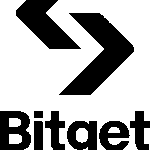Thailand is making headlines with a significant crackdown on online fraud, resulting in the freezing of over three million bank accounts in an effort to combat the surging rise of scams. This bold initiative, intended to curb financial crimes, has inadvertently created challenges for legitimate businesses throughout the country. As the landscape changes, a pressing question arises: are businesses turning to unregulated alternatives such as cryptocurrencies?
The situation began unfolding with coordinated efforts from the Bank of Thailand, the Cyber Crime Investigation Bureau (CCIB), and the Ministry of Digital Economy and Society, targeting the so-called “mule accounts.” These accounts are often exploited by scammers to launder illicit funds. Reports indicate that scams have reached alarming levels, with billions of baht lost to fraudulent investment schemes and phishing operations.
To further complicate matters, the central bank is imposing caps on daily transfers within the banking system. Depending on the type of account, businesses and individuals can now only transfer between 50,000 and 200,000 baht per day. This measure aims to hinder the rapid movement of funds by criminals throughout their networks.
Despite the intentions behind these regulations, the crackdown has significantly affected real businesses. Small online vendors who rely on instantaneous payments through QR codes or e-wallets have experienced sudden account freezes, often without any prior notice. Many of these vendors are understandably frustrated by the lack of communication from authorities, as their cash flows become jeopardized.
Acknowledging the collateral damage, the CCIB has admitted that innocent users are frequently ensnared in these sweeping measures. Scammers are reportedly using online purchases, particularly low-value transactions, to mask their illicit money flows—prompting the aggressive freezing of accounts and leaving many legitimate vendors in precarious situations.
In response to the mounting fraud, new compliance measures are being introduced. Financial institutions are now required to strengthen their Know Your Customer (KYC) protocols and ensure that all customer information is current. This aims to expedite investigations into fraudulent activities and minimize the impact on innocent businesses.
These heightened compliance demands may compel some companies to explore alternative financial solutions, such as cryptocurrencies. With traditional banking methods under strain, the appeal of cryptocurrencies lies in their potential for faster and more cost-effective transactions, coupled with enhanced privacy and security. As some banks begin to incorporate cryptocurrency services, this shift could attract a wider array of businesses.
However, the transition to unregulated financial solutions like cryptocurrencies is not without its pitfalls. Without adequate regulation and oversight, risks such as fraud and market volatility loom large. Businesses must weigh these concerns carefully before making any significant changes to their financial strategies.
While cryptocurrencies can facilitate greater financial inclusion for those marginalized by traditional banking, they also present challenges, particularly concerning the potential for systemic risks when intertwined with conventional banking. Previous economic downturns have highlighted vulnerabilities that can arise from insufficient consumer protections, leaving businesses exposed.
The ongoing crackdown on online fraud in Thailand underscores the delicate balance regulators must strike between safeguarding consumers and enabling businesses to flourish. As the situation continues to develop, companies will have to navigate the complexities of compliance and consider whether turning to cryptocurrencies serves as a viable option. The coming months will reveal whether Thailand can adapt its strategy to protect its economy from criminals while allowing legitimate businesses to thrive, with hopes that any disruptions will prove to be temporary.







